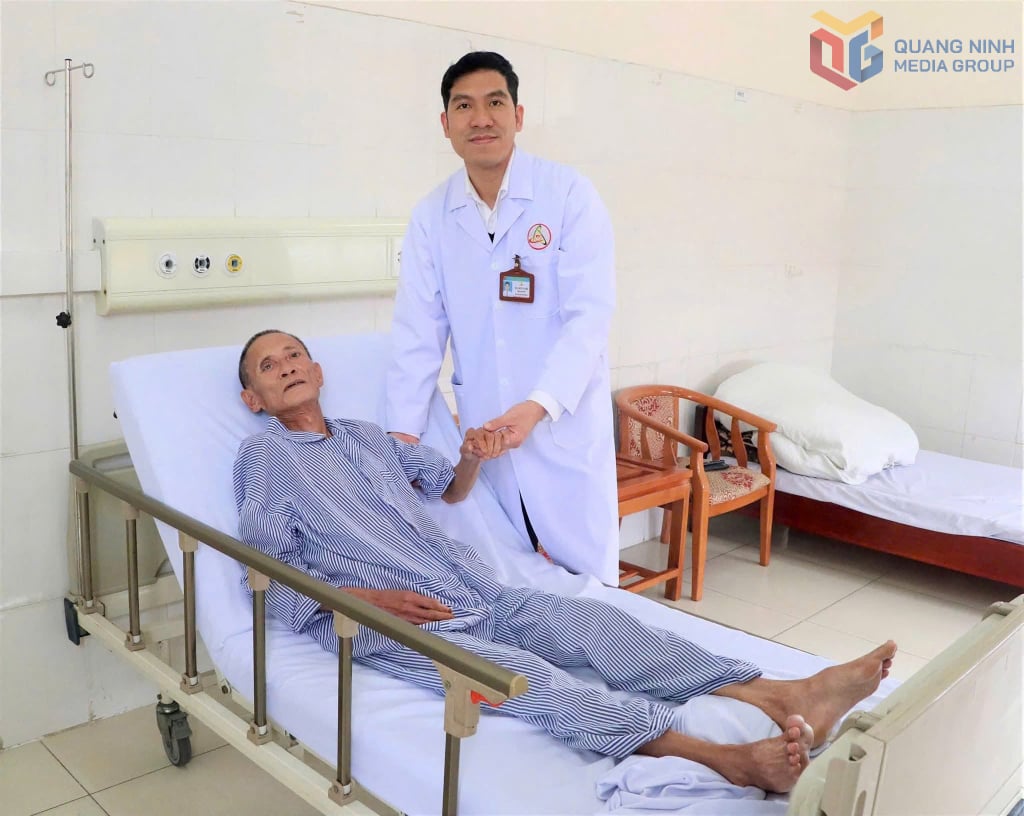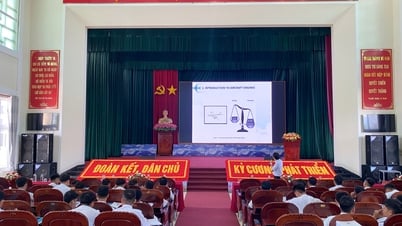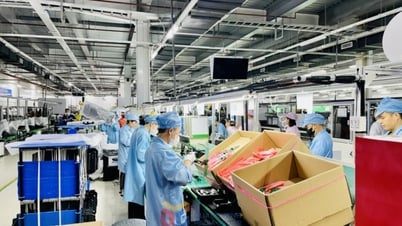
Assessing the importance of post-operative care, Dr. Ha Duy Nam, Deputy Director of Dong Trieu City Medical Center, said: “Depending on the type of surgery, the period of time the patient needs to be monitored and intensively cared for will vary, usually from the first 3 to 5 days after surgery. In special cases such as patients with multiple trauma or organ transplants, this period can last for more than a week. This is the golden period because it directly affects the outcome of the surgery.”
Although surgical techniques are increasingly modern, the risk of post-operative complications is always present. According to Dr. Ha Duy Nam, two common complications that need special attention are bleeding and infection. These are complications that can lead to serious consequences if not detected and treated promptly. In addition, although post-operative pain is not a complication, it greatly affects the patient's psychology and recovery process.
To effectively control pain, medical facilities are applying many advanced methods such as: Oral medication, rectal suppositories, subcutaneous or intravenous injections, epidural catheter injections, and plexus anesthesia catheters. Currently, most medical facilities often apply multimodal pain relief, which means combining two or more forms of pain relief, which partly improves the level of pain after surgery, making patients more satisfied.
For major surgeries such as joint replacement and deep invasive tumor removal, the post-operative care process requires even more rigor and meticulousness. “These cases have a high risk of bleeding and infection, which need to be detected early for timely treatment. Patients need to be closely monitored for survival index, bleeding status, surgical site hematoma and drainage status. At the same time, attention should be paid to the replenishment of circulating volume and nutritional supplementation. In addition, patients need to be treated to prevent thrombosis due to prolonged lying down, especially for surgeries from the pelvic area down,” Dr. Nam emphasized.
Nutrition plays a very important role in the recovery process of patients after surgery. A full and reasonable diet will help the surgical wound heal quickly, promote the regeneration of damaged tissue and increase resistance. In particular, protein and calories are two indispensable components, because protein helps build new cells, and calories provide energy for the body's vital activities. However, for patients with metabolic disorders such as diabetes and gout, the diet needs to be adjusted appropriately to avoid aggravating the underlying disease. In the early stages after surgery, when the patient cannot eat normally, intravenous nutrition is necessary to maintain physical condition. However, it is necessary to switch to enteral nutrition as soon as possible to ensure safety, save costs and, more importantly, help the digestive system return to normal function, creating a foundation for a comprehensive and sustainable recovery process.
Doctors recommend that during the home care phase, family members and patients need to continue to care for and detect any abnormalities at the surgical site such as swelling, discharge, increased pain; monitor for abnormal signs throughout the body such as fever, dizziness, bloating, chest tightness, shortness of breath, decreased consciousness...; follow the doctor's instructions on exercise regimen...
With a key role in the treatment journey, the post-operative care phase requires close coordination between the medical team, the patient and the family. Understanding and acting correctly during the “golden phase” not only improves the effectiveness of treatment but is also a way to minimize the risk of re-hospitalization, save medical costs and, most importantly, protect the patient’s long-term health.
Source: https://baoquangninh.vn/cham-soc-benh-nhan-sau-phau-thuat-giai-doan-vang-quyet-dinh-ket-qua-dieu-tri-3354574.html


![[Photo] T&T 1 and Ho Chi Minh City 1 People's Police Teams won the men's and women's team championships](https://vphoto.vietnam.vn/thumb/1200x675/vietnam/resource/IMAGE/2025/5/22/39db06ae67cb4001b7a556e8d9a56d07)

![[Photo] Press delegation meeting to visit Truong Sa and DK1 Platform](https://vphoto.vietnam.vn/thumb/1200x675/vietnam/resource/IMAGE/2025/5/22/6b8d232877ec421a9e8187d83b9f8006)
![[Photo] General Secretary To Lam chairs a working session with the Central Internal Affairs Commission](https://vphoto.vietnam.vn/thumb/1200x675/vietnam/resource/IMAGE/2025/5/22/3b7790f499da45b2803d8ae253207ef1)
![[Photo] Prime Minister Pham Minh Chinh chairs meeting on draft Resolution of National Assembly on International Financial Center in Vietnam](https://vphoto.vietnam.vn/thumb/1200x675/vietnam/resource/IMAGE/2025/5/22/d398664ff1a140629169ea5a24e1b4d0)










































































![[Podcast] Week introducing more than 500 OCOP products in Hanoi](https://vphoto.vietnam.vn/thumb/402x226/vietnam/resource/IMAGE/2025/5/22/d144aac2416744718388dbae3260e7fd)





Comment (0)